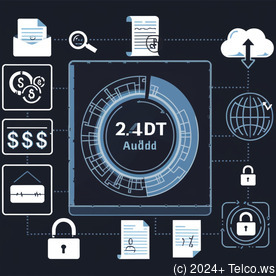
Comprehensive Guide to APIs for Mobile Needs




Understanding APIs: The Backbone of Mobile Applications
Application Programming Interfaces (APIs) serve as crucial bridges that enable communication between different software applications. In the context of mobile applications developed using Dart, APIs act as critical conduits for accessing various services, databases, and functionalities that extend beyond the app's internal scope. By providing developers with standardized methods for pulling information and invoking external services, APIs significantly simplify the inherently complex processes involved in mobile app development.
The distinction between different types of APIs, particularly RESTful and GraphQL APIs, has become increasingly important as Dart developers navigate the landscape of mobile app development. RESTful APIs are widely known for their simplicity and efficiency in handling standard requests using HTTP, while GraphQL APIs provide a more flexible querying system that allows clients to request only the data they need. Understanding the nuances of these technologies can dramatically affect how mobile apps operate, how they interact with back-end systems, and how they deliver user experiences that are both responsive and engaging.
Moreover, APIs play a pivotal role in ensuring that applications can stay relevant in a fast-paced technological landscape. They allow developers to incorporate new features without incurring the extensive costs and time associated with developing everything from scratch. Backend systems can be updated independently of front-end applications, empowering businesses to respond to changing market demands swiftly.
Ultimately, understanding APIs and their core functionalities is paramount for developers and businesses aiming to leverage mobile technology to meet users evolving expectations. As mobile applications become increasingly integrated into daily life, driven by the proliferation of IoT devices and smart technologies, the demand for efficient, reliable, and scalable API solutions will continue to rise.




The Economic Impacts of APIs for Mobile Applications
From an economic perspective, the strategic utilization of APIs can yield substantial financial benefits for businesses ranging from startups to established corporations. By leveraging pre-built components and services that easily integrate into existing applications, businesses can conserve valuable developer time and resources. This translation into reduced development cycles means companies can allocate their assets toward core business functions, innovate faster, and maintain a competitive edge in a crowded marketplace.
APIs also open doors to new revenue streams. Integrating payment processing APIs, geographical services, or social media functionalities into mobile applications allows organizations to enhance user onboarding, streamline transactions, and encourage user engagementall key pillars that can lead to increased customer acquisition and loyalty. Research indicates that businesses that effectively incorporate APIs see up to a 30% increase in customer satisfaction and retention rates, translating into tangible financial returns.
Furthermore, APIs facilitate partnerships among businesses, enabling them to collaborate on projects, share data, and develop joint solutions that further drive growth. For example, travel apps that integrate hotel booking APIs can connect users to a wider range of services without having to build and maintain these functionalities in-house. This synergy not only enhances the app offering but also encourages collaborations that can amplify market reach and profitability.
Additionally, the operational efficiency gained from API integration can lead to decreased costs over time. By utilizing third-party services through APIs, companies eliminate the need for extensive infrastructure and reduce maintenance overhead, allowing them to invest those savings into innovation and further business development. This model transforms traditional business strategies, making it possible to explore new markets and audiences.




The Political Landscape Surrounding APIs
When examining APIs in the realm of mobile application development, it is essential to consider the political context that governs data use and privacy standards. As governments worldwide are increasingly focused on regulating how data is accessed and shared, compliance with legislation such as the General Data Protection Regulation (GDPR) and the California Consumer Privacy Act (CCPA) becomes critical. These regulations mandate stringent measures for protecting consumer data and ensuring transparency in its use, which directly impacts how APIs are designed and deployed.
For instance, developers must ensure that their APIs include adequate authentication and authorization mechanisms to prevent unauthorized access to sensitive information. Furthermore, APIs must be designed with data minimization principles in mind, allowing them to process only the necessary amount of personal data. Understanding and adhering to these legal requirements will help mitigate risks of compliance violations while fostering trust among users.
The complexities increase when APIs facilitate data exchange across borders. Businesses operating globally must navigate the intricacies of different regulatory environments while ensuring compliance with both local and international laws. As technology evolves, so do the laws that regulate it, making it imperative for businesses to stay informed and adaptive. A failure to properly manage these regulations can result in significant penalties and damage to a brand's reputation, underscoring the importance of integrating legal considerations during API development stages.
Beyond compliance, the political implications of APIs extend to how they might influence public perception. Companies that are transparent about their data practices and utilize APIs in ways that respect user privacy can foster brand loyalty and enhance their public image. Conversely, any misstep can lead to public outcry, calls for regulation, or worseloss of consumer trust.




Social Dynamics and APIs in Mobile Applications
From a societal standpoint, the adoption and integration of APIs in mobile development have profound implications on how users engage with applications. As developers utilize APIs to create more interconnected platforms, consumers benefit from improved functionalities and user experiences. The rise of social media integration, for example, demonstrates how APIs allow applications to share content seamlessly, thereby enabling users to engage with their external networks easily.
Demographic factors also play a significant role in how APIs shape user experiences. Younger demographics, characterized by rapid technological adaptation, have come to expect applications to provide instantaneous connections to social platforms and a variety of services. In response to these expectations, developers must prioritize speed, functionality, and user-centric designs to stay relevant and appealing to these consumers.
Moreover, the social implications extend beyond mere functionality. APIs enable mobile applications to incorporate features that promote inclusivity, such as accessibility options for individuals with disabilities. By leveraging APIs that ensure compatibility with assistive technologies, developers can create more equitable digital environments that empower all users to participate seamlessly.
The widespread availability and integration of APIs also encourage collaborative community-driven initiatives. Developers can create open APIs that allow external contributors to build tools and applications that extend their platform's usability and reach. This cooperative model fosters innovation and allows for valuable contributions from diverse perspectives, enriching the application ecosystem.
Ultimately, by integrating social considerations into their API strategy, companies can enhance user engagement and satisfaction while fostering a greater sense of community among their users.




Environmental Considerations in API Development
An increasingly relevant aspect of API development involves environmental awareness and sustainability practices. Developing APIs with eco-conscious principles can significantly reduce resource consumption. By minimizing unnecessary data transfers and optimizing protocols for efficiency, developers can decrease the energy footprint associated with their systems. This becomes particularly important given that data centersresponsible for processing API requestsare major consumers of energy.
Organizations also have an opportunity to leverage their APIs for environmental health initiatives, such as creating applications that monitor climate change data or promote sustainable consumer behavior. APIs can streamline data collection for environmental projects, allowing for enhanced research capabilities and community-driven applications that raise awareness of local environmental issues.
By prioritizing sustainability in API design and implementation, organizations can align themselves with corporate social responsibility goals that resonate with todays environmentally conscious consumers. This not only improves brand reputation but also fosters customer loyalty among users who prioritize sustainability in their decision-making processes.
Moreover, actively promoting environmental initiatives through API-enabled applications can position companies as leaders in sustainability within their respective industries, further differentiating them from competitors. The integration of environmental metrics into applications can empower users to make more informed choices, thereby cultivating a market that values sustainability.




Legal Frameworks and APIs
The legal landscape surrounding APIs is both intricate and vital. As the prevalence of APIs continues to grow, so too do the legal considerations tied to their creation and usage. Licensing agreements, data protection laws, and intellectual property rights are critical components that developers must navigate. Ensuring that API usage adheres to established legal guidelines helps prevent disputes and enhances trust between developers and consumers.
In particular, the rise of API marketplaces has introduced new complexities surrounding the licensing of third-party APIs. Businesses must thoroughly assess licensing agreements to ensure they understand the limitations on usage, potential liabilities, and responsibilities tied to third-party offerings. Failure to do so can lead to unforeseen legal challenges that can impact an organizations reputation and financial standing.
Moreover, intellectual property considerations play a significant role in API design. Developers must be mindful of protecting their proprietary technology while respecting the rights of others. To that end, understanding the difference between open-source APIs and proprietary APIs, as well as their implications, is essential for maintaining compliance and fostering ethical development practices.
As APIs facilitate access to vast amounts of data, the issue of data ownership also becomes a point of contention. Businesses must establish clear terms of service and data usage agreements to avoid conflicts and ensure clarity for all parties involved. This also applies to user-generated content; APIs used in platforms that allow user interactions should have robust frameworks to govern content ownership and rights.




A Historical Perspective on API Development
The evolution of APIs reflects a broader trajectory of technological advancement within the software development lifecycle. Originating from simple web services, APIs have grown in complexity and sophistication, adapting to the needs of modern application development. In the early 2000s, XML-based SOAP APIs dominated the space, offering robust capabilities for data exchange; however, they often proved cumbersome for developers, particularly in mobile environments where performance is critical.
As the development landscape shifted towards more agile methodologies, RESTful APIs began to gain traction, offering lightweight alternatives that improved speed and flexibility. With the introduction of JSON as a data interchange format, RESTful APIs flourished, allowing developers to create more responsive applications that seamlessly integrate with diverse services. Today, GraphQL has introduced yet another layer of sophistication, enabling customizable data retrieval that allows developers to optimize their applications based on precise user needs.
This historical context emphasizes the importance of embracing ongoing changes in API technology. As mobile app development continues to evolve, understanding the trajectory of API development serves as a guiding framework for future innovation, preparing developers to adapt their strategies accordingly. Keeping abreast of emerging technologies and trends is essential for maintaining a competitive edge in the marketplace.
Furthermore, the historical evolution of APIs serves as a reminder of the importance of adaptability in software design. The most successful businesses are those that are not only responsive to current user needs but also proactively forecast future demands and technological advancements. This agility will remain a hallmark of successful API strategies moving forward.




Scientific Foundations of API Development
The scientific study of API development reveals critical insights into their design and adoption. Research indicates that a well-architected API can lead to enhanced developer satisfaction, increased software quality, and improved app performance. Metrics and analytics can be employed to monitor APIs in real-time, providing insights into usage patterns and identifying traffic bottlenecks, which can inform optimization efforts.
Furthermore, emerging trends in API design, particularly those emphasizing microservices architecture and serverless paradigms, have encouraged developers to create more isolated and focused services. This shift mitigates the risk of interdependencies that can lead to cascading failures. By employing these principles, businesses can build resilient applications that efficiently scale in response to user demands.
This scientific perspective underscores the necessity for organizations to adopt best practices and continually assess their API offerings. Conducting periodic evaluations of API performance, user engagement, and developer satisfaction should be integral to API strategies for long-term success. Employing methodologies such as A/B testing and user feedback can lead to iterative improvements that significantly enhance API functionality and effectiveness.
Moreover, collaboration between technical teams and product managers can ensure that API development aligns not only with technical requirements but also with overall business objectives. A holistic approach that combines technical knowledge with strategic foresight will support better outcomes in API development initiatives.




Technological Impact of APIs
APIs represent a critical technological advancement in mobile application development, facilitating connections between software solutions that enhance functionality. For instance, APIs can grant developers access to external services such as geolocation, real-time payments, and augmented reality features, enabling them to enrich user experiences significantly. The complexities of mobile environments demand that developers utilize APIs to access sophisticated functionalities quickly and efficiently, ultimately accelerating the development process.
As mobile devices become increasingly integrated with AI and machine learning technologies, APIs will increasingly act as gateways that enable applications to leverage advanced computational capabilities. Developers can create applications that assess data patterns, predict user behavior, and personalize content without needing to build complex algorithms from scratch. For example, incorporating machine learning APIs allows apps to provide recommendations based on user behavior analysis.
This technological evolution highlights the pivotal role APIs play in the software ecosystem. Businesses that leverage these tools not only enhance their application capabilities but also future-proof their investments by remaining agile in response to shifting market dynamics. In this context, APIs are not just ancillary components; they become central to the overall architecture of modern digital products.
Therefore, it's essential for developers to stay abreast of emerging technologies that can be accessed via APIs and integrate them thoughtfully into their applications. Building APIs that accommodate future enhancements and allow easy collaboration with other services can lead to more dynamic, scalable, and successful mobile applications.




Health Considerations Related to Mobile APIs
APIs have become essential in the healthcare sector, enabling the integration of various systems that facilitate effective communication between healthcare providers and patients. For instance, APIs allow applications to exchange patient data seamlessly, enabling functionalities such as appointment scheduling, medication reminders, and telehealth services that serve to improve the quality of patient care. The COVID-19 pandemic accelerated the adoption of telemedicine solutions, showcasing how API technology can be pivotal in enhancing healthcare delivery under challenging circumstances.
Additionally, APIs can streamline data collection and reporting processes, enabling healthcare organizations to access and analyze patient data in real-time. This enhanced accessibility empowers healthcare providers to make informed clinical decisions, ultimately leading to better health outcomes. Moreover, the focus on interoperability among different health information systems emphasizes the significance of API solutions in creating a cohesive healthcare environment.
As the healthcare landscape continues to evolve, the integration of APIs will play a crucial role in promoting high-quality and accessible care for patients while enabling healthcare organizations to operate more efficiently. By facilitating the secure sharing of medical records through APIs, providers can ensure that patients receive comprehensive care without the delays often associated with data retrieval.
Furthermore, health-focused applications built on robust APIs can empower individuals to manage their health more effectively. From chronic disease management tools to mental health and wellness apps, the potential for API utilization in personal health monitoring continues to grow, enabling users to take charge of their well-being.




The Psychological Effects of APIs on User Interaction
The incorporation of APIs into mobile applications fundamentally influences user interaction and engagement. By enabling personalized experiences, APIs lead to heightened user satisfaction and emotional connections with applications. For example, APIs that facilitate social media logins simplify the onboarding process, providing users with instant access while reducing barriers to entry. This immediacy fosters a sense of ease and enhances user retention.
Additionally, APIs that allow for customization based on user preferences can lead to improved levels of user satisfaction. When applications are responsive to user needs and behaviors, it results in a more enjoyable experience that nurtures lasting relationships with brands. In fiercely competitive markets, where consumers have countless options, businesses that prioritize user engagement through effective API strategies are more likely to thrive.
Moreover, understanding psychological drivers can inform how APIs are implemented. For instance, gamification elements integrated into applications via APIs can boost engagement and encourage user interaction. By tapping into psychological motivators such as achievement and competition, developers can create compelling experiences that retain users' interest.
In essence, by focusing on the user experience and emotional well-being of consumers, businesses can utilize APIs to foster loyalty, enhance customer satisfaction, and create positive brand associations that pave the way for long-term success. As user expectations continue to evolve, companies must remain adaptable to changing psychological landscapes to ensure their APIs deliver the intended benefits.




Conclusion: Embracing the Future of Mobile APIs
In summary, leveraging APIs for mobile applications offers a multifaceted opportunity for organizations to enhance their technological capabilities and drive economic growth. A comprehensive understanding of the various perspectives pertaining to APIsfrom economic advantages and legal frameworks to social dynamics and environmental issueswill empower companies to create robust mobile solutions that effectively address user needs while complying with regulatory standards.
Investing in well-designed APIs not only streamlines development processes but also positions businesses favorably in the evolving mobile landscape. Through timely updates, seamless integrations, and responsive user experiences, organizations can foster customer loyalty and satisfaction, ultimately resulting in a strong competitive advantage.
As mobile applications become increasingly integral to users daily lives, the relevance and importance of APIs will only continue to grow. Organizations that prioritize and invest in efficient API solutions are well-positioned to capitalize on emerging trends and technological advancements that set the stage for future innovation and success.
By embracing a culture of continuous improvement and adaptability, businesses can leverage APIs not just as tools, but as strategic assets that drive engagement, innovation, and operational efficiency in the fast-paced world of mobile technology.
Discover Our API Development Services
If youre interested in elevating your mobile application experience through state-of-the-art API solutions, look no further. Our expertise in API development can help your business optimize performance and user engagement. With packages starting at just $850, we offer tailored API development services specifically designed to meet your business needs. Please proceed to our Checkout Gateway to place your order and use our Payment Processor to secure your investment of $850. Once your payment is complete, please reach out to us via email, phone, or our website with your receipt to finalize your API Development Service. Thank you for considering us to enhance your mobile capabilities!
